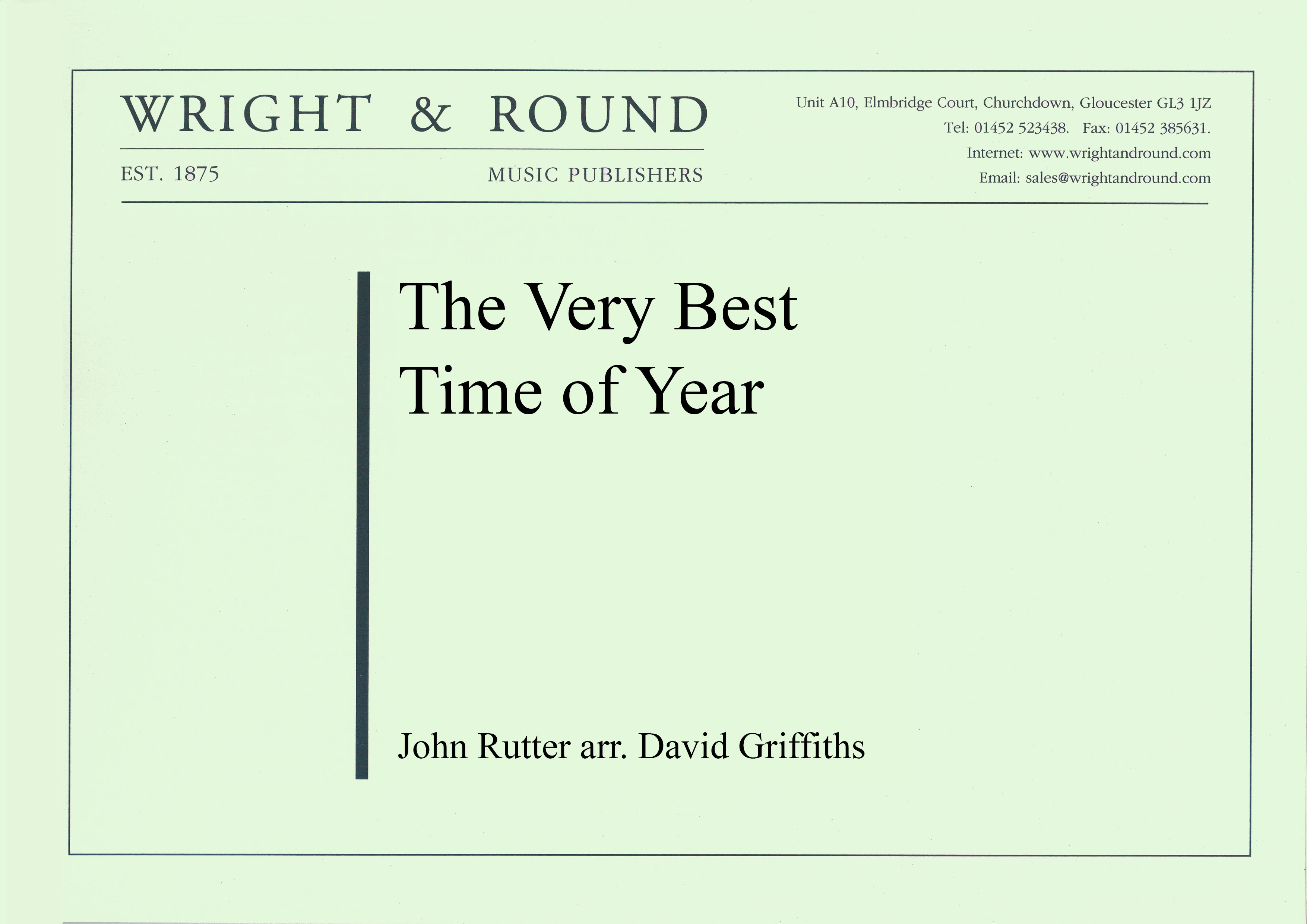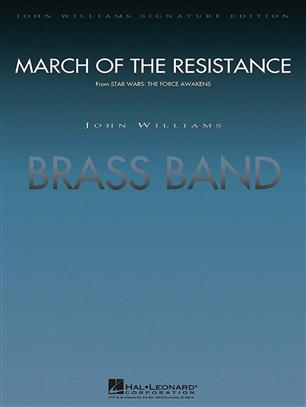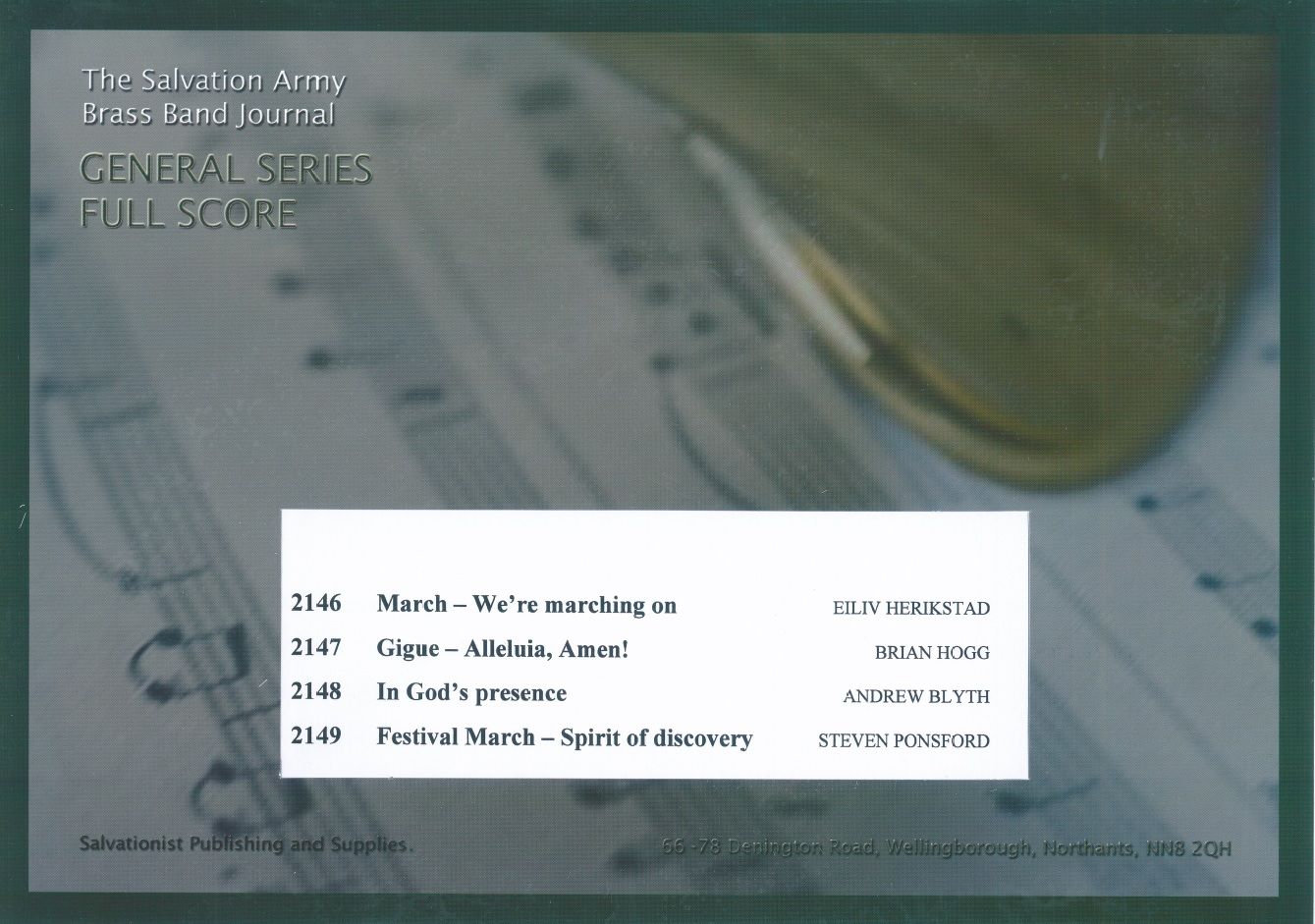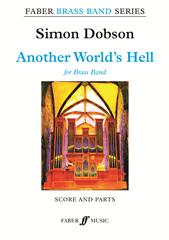Results
-
 £104.99
£104.99INTRADA (Brass Band) - Waespi, Oliver
Intrada pays homage to the vocal polyphony of Renaissance composer Johannes Wannenmacher. Waespi has successfully transmitted the musical integrity and strength of these vocal pieces to this new work for brass band. Duration: 9:45.
Estimated dispatch 7-14 working days
-
 £49.95
£49.95JEBEL (Brass Band) - MacMillan, James
James MacMillan is the pre-eminent Scottish composer of his generation. His works have been performed throughout the world by prestigious performers, such as London Symphony Orchestra, New York and Los Angeles Philharmonics and Cleveland Orchestra. Jebel, MacMillan's first original work for brass band, pulsates with drama and excitement and is sure to become a regular feature in concerts throughout the world. Duration: 3:00
Estimated dispatch 7-14 working days
-
 £54.99
£54.99Only Time (Brass Band - Score and Parts)
For many years Enya has been selling as many records as pop goddesses like Madonna and Britney Spears. But it was the events of September 11, 2001 that truly brought this Irish singer to the world stage with CNN broadcasting her ballad Only Time with the tragically dramatic images around the World Trade Center in New York. Ron has arranged this moving song in his own familiar creative way 03:00
Estimated dispatch 7-14 working days
-
£45.00
The Magnificent Seven Theme and Calvera - Bernstein, E - Harper, P
The iconic movie theme in a new arrangement, faithful to the original and used as the opening item in Cory Band's 2024 Brass in Concert win.2nd Section +Duration 2 mins 30 seconds Click to Listen
In Stock: Estimated dispatch 1-3 working days
-
£22.50
The Magnificent Seven Theme and Calvera (Score) - Bernstein, E - Harper, P
The iconic movie theme in a new arrangement, faithful to the original and used as the opening item in Cory Band's 2024 Brass in Concert win.2nd Section +Duration 2 mins 30 seconds Click to Listen
In Stock: Estimated dispatch 1-3 working days
-
£40.00
The Triple Crown - Harper, P
A new march in a traditional style composed for the 90th Anniversary of the East Anglia Brass Band Association3rd section +Duration 3.5 mins
In Stock: Estimated dispatch 1-3 working days
-
 £35.00
£35.00The Very Best Time of Year (Euphonium Solo with Brass Band - Score and Parts)
This new arrangement for Solo Euphonium & brass band by David Griffiths, truly evokes that feeling of nostalgia and longing anticipation of the joyous season and is a true celebration of all that we love about Christmas time! Suitable for 4th Section Bands and above
Estimated dispatch 7-14 working days
-
 £60.99
£60.99March of the Resistance (Brass Band - Score and Parts)
From the blockbuster film Star Wars: The Force Awakens, John Williams reprises a few earlier themes along with dynamic new material. The memorable March of the Resistance is fittingly dramatic and powerful, and is prominent at key moments in the movie.
Estimated dispatch 7-14 working days
-
 £70.00
£70.00General Series Band Journal August 2015 Numbers 2146-2149
No. 2146 March - We're marching on (Eiliv Herikstad)This march is in the form of a medley and was written for Askim Band's 70th anniversary concert, as a surprise encore; instead of an old march, the audience got a new march they had never heard before.
Estimated dispatch 7-14 working days
-
 £79.99
£79.99Another World's Hell (Brass Band - Score and Parts)
Another Worlds Hell was commissioned in versions for brass, wind and fanfare bands by the Societe Cantonale des Musiques Vaudoises and the Association Cantonale des Musiques Neuchateloises for the 2013 Swiss Cantonales festivals. It is inspired by a passage in Aldous Huxleys classic 1932 science-fiction novel Brave New World, which describes in unusually close detail the music that is being played at a dance. This is Dobsons interpretation of the imagined future music that Huxley dreamed of. Suitable for 1st Section Bands and above. Duration: 13.00
Estimated dispatch 7-14 working days
